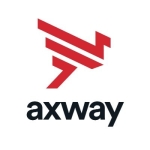What is our primary use case?
Over the course of my 15 year use, we automated dozens of processes with easily hundreds of tasks. Then, almost six years ago, we outsourced a large number of processes so we didn't do them in-house, and as a result OpCon wasn't doing very much for us for a time. About two years ago, we started automating new processes. Now, with OpCon, we have automated about half a dozen good sized processes.
I am using a very recent version.
How has it helped my organization?
Our most recent automation project had to do with our mortgage origination system where we automated virtually all of the steps being done by a human. This was about two hours worth of work each day, if done manually. This has to be done 365 days a year (weekends or holidays, it doesn't matter). Now, OpCon runs those steps each day. It finishes in under a half an hour and is done before people even have to come into work. This was a project that benefited us tremendously.
With this project, we made people's time available to do more effective things. We didn't eliminate any staff, but we weren't even trying to. We were trying to make tasks able to be done more consistently and automatically, then allow the staff that used to do them to work on other things.
There used to be either one or two people who had to do this job every single day. So, the automation project affects those two people. Indirectly, it probably benefits 20 to 30 people by having work automated and time available to do more effective things for the company.
At first, people were skeptical that the work could be done properly. They wanted a solution, but were afraid that it might not work or would not perform as well (as them). However, they are very happy now with the fact that they don't have to come in at 6:00 a.m. and work on holidays, etc. The solution streamlined our mortgage operations.
While somewhat small, we just recently added automation to an everyday process. This is just one of those things where now nobody has to do it. There was a file that needed to be downloaded from our credit card servicer and moved to a different place on our network, then renamed. You also need to archive the file that was there from yesterday. This was a relatively straightforward set of tasks. I don't think the automation project took very long to do, probably a couple of hours, likely less; it took somebody 15 minutes a day. Now, nobody has to even think about it, as it's just there automatically. We have had two similar, recent projects where it was a question of downloading files made available on a daily basis, putting and renaming them where they need to be, and then managing archives of the files afterward.
What is most valuable?
It can run scripted tasks automatically over and over without intervention. That is what it does and the part that I really like because repetitive tasks need to be done over and over, day after day, no matter what day of the week it is. It is difficult to have staff do these manually and accurately, especially over weekends or through the night. Instead, you can have OpCon do them.
What needs improvement?
I wouldn't call it the easiest to automate. It has to be learned, training is required, then you get better at it over time. There are right ways and wrong ways to go about it (think standards, best practices, conventions). It isn't realistic to think that OpCon is very easy and you can just start clicking around to do complex things. It's flexibility and rich feature set also make it challenging at first.
There is one thing I wish OpCon could do. I'm not sure if it should be expected to, but we have tried to get it to where it could start a process on an external database. I'm sure SMA would say that in some cases it can, but we have a specific application where it can't. Therefore, if there were some tools which allowed us to interact with this external database automatically, that would be helpful.
For how long have I used the solution?
I have been using the solution for about 15 years. Those 15 years that I have been using OpCon span two different employers.
What do I think about the stability of the solution?
It is very stable. It is rarely offline or not functioning because of some internal error. This happens once in a great while, so I would call it very stable.
It can be deployed and maintained by as little as one person or a fraction of an FTE. It's not a full-time job taking care of it, not at the scale of our company.
What do I think about the scalability of the solution?
My impression is that it scales incredibly, because of the size of some of the institutions that it has been used in, even being used by our own banking solutions provider at their large multi-tenant level.
OpCon is capable of running automation for multiple servers and multiple businesses, e.g., many dozens of institutions like ours. There are very large scale deployments of OpCon, but I don't know how many servers, consoles, or employees that it takes to run them.
70 percent of our manual processing has been automated. I guess we have more to do!
For our environment, OpCon has daily schedules doing jobs throughout the day and night. It is fairly extensive. I would consider it a critical piece of our operations.
There might be as many as a dozen employees who touch it in some way, shape, or form. There are maybe two or three employees capable of working with it as administrators. Perhaps a couple are power users. The are indirect consumers or beneficiaries of the service. Also, there is a module called self-service. We have a number of users in back office type roles who use self-service buttons to accomplish some tasks by kicking off a process or task.
How are customer service and technical support?
I would rate the technical support very high. They know their product very well. OpCon also knows our industry and is very commonly deployed in our vertical, which is financial services, and in particular, credit unions. They implement their own best practices and can therefore easily build on work their consultants have previously accomplished.
Which solution did I use previously and why did I switch?
I did use another automation tool before OpCon, but there is almost no comparison. It is certainly not apples to apples. I have used Windows Scheduler to do very simple things, but again, there is no comparison to what OpCon can do.
OpCon was implemented at my former company while I was there, and when I came to work for my current company, the solution was already in place.
How was the initial setup?
I was involved in initial setup in my other job a long time ago. It was relatively complex, but SMA does it for you. From that standpoint, it made the initial setup straightforward for me.
For the two employers that I have done this solution with, the strategy was to identify the most important processes that we wished to have automated. It might be important because of the process's criticality to the company or because of how annoying it is to have to do it every day. Those are identified, then documentation is gathered together. It might also be information inside people's heads. So, you have to do some interviews or onboarding meetings where you get the information together required to make it able to be automated. You work with an SMA engineer to do the initial automation along with training, then you place it into production. My strategy from there is to use the onsite expertise to help identify the next tier of things that should be automated so we can work on them ourselves as we go forward.
What about the implementation team?
SMA normally does the initial deployment. They come onsite for your first implementation and spend a week. Then, they often will come back and spend a second week as part of the deployment plan. By the time they are done, there are usually a great number of identified processes which have already been automated. From the initial deployment to getting things up and running on a server to having things automated in production, you can easily have these results inside a month.
What was our ROI?
The solution has reduced data processing times in two ways:
- With the mortgage servicing example, that was a large project. It accomplishes the work in a much shorter amount of time. Nobody has to waste their time waiting between cycles and tasks. Essentially, it cuts down drastically on how long the process takes.
- In the case of one of the more recent smaller examples, it does its job in something close to minutes, even possibly under a minute. Whereas, if a person had to go to their workstation, sit down, login, and transfer the file, then rename it, it would take them perhaps five minutes or more. On a percentage basis, that is a huge time savings.
Offhand I would say it's at least a 75 percent time savings. We have not done a formal ROI. However, looking at our licensing costs on an annual basis and showing how that saves in terms of staff time/efficiency and getting tasks done after hours (365 days a year), we do see return on our investment.
What's my experience with pricing, setup cost, and licensing?
There are standard licensing fees and annual maintenance. They also have a subscription model that is a hybrid managed service. We have also invested in ancillary API and connector licences specific to our environment and use cases.
Which other solutions did I evaluate?
At my previous company, we did evaluate other options. We evaluated another process automation commercial package, and we decided instead on OpCon.
We chose OpCon because of how feature rich it was. The other products could have done the immediate things at hand that we wanted to automate. However, we pictured OpCon as being able to do more than that down the line, so we wanted to invest in a more robust solution.
What other advice do I have?
Technically, almost anything can be automated. However, there is almost an equal amount of work that has to be done to have the people part accept and trust it.
My advice to overcome the people factor would be to adopt a fairly formal project management approach and bring those people in as stakeholders. Listen to what they want, then try to ask questions for the rest, as there are things that they just won't tell you. Get as much possible information from them so they understand that you want to help them and are not trying to take their job away. That is the big thing: people shouldn't feel like their job is threatened at all. Work through a project management process showing them how progress is being made, what the results are, and help them to start trusting the solution along the way before it goes live. The big key is communication and information gathering.
The solution is very good. It's robust and scales. OpCon comes with good tech support. There is always room for a product to grow or be a little easier to use or maintain. I would give it a nine (out of 10) overall.
Which deployment model are you using for this solution?
On-premises
Disclosure: PeerSpot contacted the reviewer to collect the review and to validate authenticity. The reviewer was referred by the vendor, but the review is not subject to editing or approval by the vendor.














